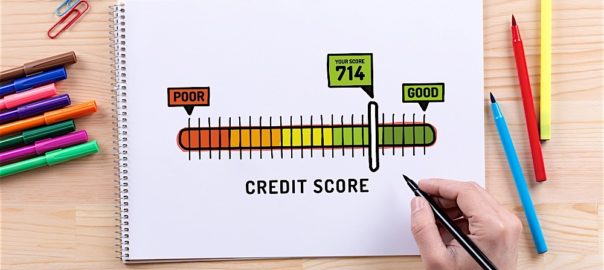5 Items That May Be Impacting Your Credit Score
By Paul Esajian on May 31, 2017
It can be a miserable feeling paying everything on time only to find that your credit score has taken a tumble. In the real estate world, it is not a stretch to say that your credit score is one of the more important aspects of your business. Regardless if you use lender financing, hard money or simply need to obtain a short-term loan your credit score needs to be strong. While paying everything on time has the most obvious impact on your score there are other items that make a big difference. It is usually the seemingly minor items that you either forget about or overlook that can cause your score to drop 10, 20, 30 points or more. Here are five overlooked items that may be impacting your credit score.
- Small Collection Accounts. There are repercussions for not making a monthly payment. Most people are aware of the impact of missed payments for a property or an automobile but there are also consequences other items on your credit report. If you don’t pay a phone or utility bill it doesn’t just go away. There are instances when you close out an account and are left with a small balance. You may have thought you paid it or the amount is so small you don’t really give it much thought. You end up throwing the bill away and a few months later you find a collection on your credit report. An open collection drops your score every month until it is closed. It doesn’t matter if the bill is for $500 or $5,000. Collection accounts are constantly sold from one collection company to another making it difficult to know who to send payment to. Once you track down the creditor you need to get an updated balance and send proof of payment to the credit company. You are better off paying the remaining balance rather than dealing with a collection company.
- Medical Bills. Medical bills work in much the same way as the utility bill you overlooked. You may have had minor surgery or had a dispute over a copay with your insurance company. You received a few letters and phone calls but since they don’t have a direct impact on your monthly bills you dismissed them. Eventually the letters and phone calls will stop and you think the issue has been resolved. Instead what has happened is the account was sold to a collection company. They now own the debt and will try to collect it from you instead of the hospital or insurance company. Any kind of collection or lien does damage to your credit report that you may not realize. Even if you look at your credit you may not see the account. Collections are typically listed at the end of the report or there may just be a line under the account. The bottom line is you need to look at your credit report every few weeks for old accounts you may have overlooked.
- Overextended. It is possible that you pay every account on time and still have a less than perfect credit score. Timely payments are always important but are just one of the factors that influence credit score. The available credit balance makes up roughly 30% of your score. You can pay everything on time but if you are maxed out or nearly maxed out on your accounts your score will dip. If you can pay down some of your debt you need to consider it. There are always arguments on whether it is better to have funds in reserve or to pay down debt. With items on your credit report you don’t need to pay a ton down to make an impact. As a rule of thumb if you can pay your balance down to 70% of the available balance that is a good start. Instead of making one large payment you can try to add a little extra every month. In just a few months you will see a difference in your balance and in your credit score.
- Closing Credit Cards. The common logic when most people pay off a credit card is to close it as quickly as possible. This can actually do more harm than good for your credit score. If you have paid down a card you should keep it open without using it. The available balance you have on a card is viewed as a positive and will boost your score. Conversely if you close the card you lose ability to use the card and your score will take a hit. The key here is to be disciplined enough to keep the card open without being tempted to use it from time to time. If you do use it you need to immediately pay it off as quickly as possible.
- Inquiries. It is not a good idea to constantly have your credit pulled. The credit bureaus allow a few credit pulls a month but anything more than three is considered a red flag. It is viewed as a sign that you are having financial trouble and need to rely on credit to pull yourself out. The more credit you have the less likely you will make a repayment and the lower your score will be. A few inquiries are ok but make sure not to go crazy.
You never know when you will need to rely on credit or have someone look at your credit score. Even if you pay everything on time there may be hidden items that are impacting your score.